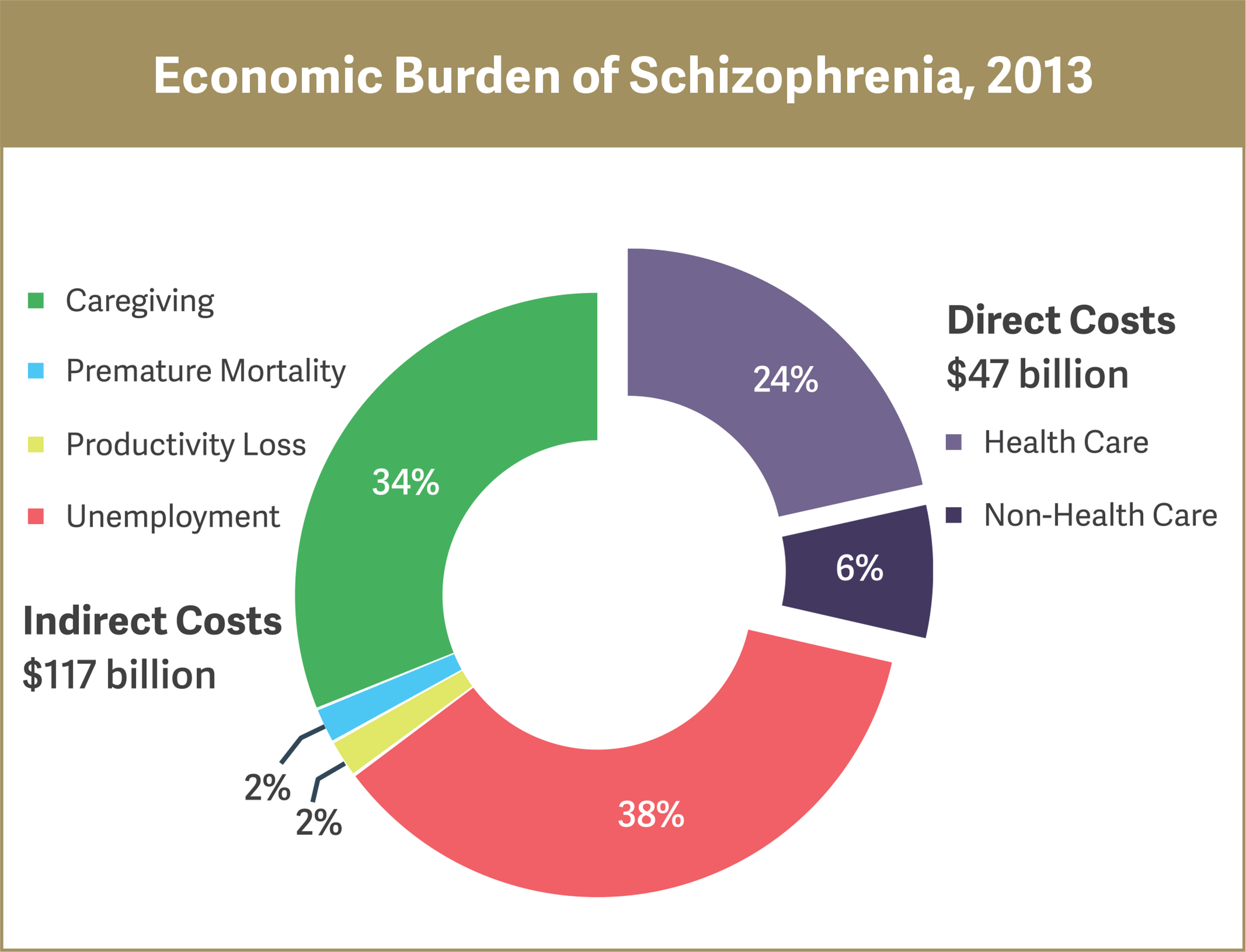-
Economic Burden of Schizophrenia in the US Exceeded $155 Billion in 2013, New Study Finds
The estimated economic costs of dealing with schizophrenia from a societal perspective in the United States totaled $155.7 billion in 2013, according to a new Analysis Group study.
The figure is even more notable when compared with total economic costs of $62.7 billion in 2002, as determined by the Analysis Group team in a similar study published in 2005.
The new study, “The Economic Burden of Schizophrenia in the United States in 2013,” is by an Analysis Group research team including Managing Principals Eric Wu and Annie Guérin and Senior Economist Martin Cloutier.

Note: Percentages add up to more than 100 percent because they have been calculated after accounting for cost offsets. Source: Analysis Group, “The Economic Burden of Schizophrenia in the United States,” 2016, prepared for Otsuka America Pharmaceutical
Why the dramatic increase?
Most importantly, the prevalence of schizophrenia is now better documented than it was a decade ago. In the new study, the researchers based their estimates on a prevalence estimate of 1.1 percent, versus 0.5 percent in the original study. The conservative prevalence estimate used in 2005 was based on a retrospective claims analysis and epidemiological survey studies. In the new study, the prevalence estimate was based on more sophisticated and recent data from the National Institute of Mental Health.
Several structural changes over the past decade also likely impacted the economic burden of schizophrenia: coverage changes in Medicare programs (e.g., coverage for outpatient prescription drugs beginning in 2006), new legislation on health care coverage (e.g., Patient Protection and Affordable Care Act, 2010) and coverage quality (e.g., Mental Health Parity and Addiction Equity Act, 2008), changes in pharmacologic therapy (i.e., introduction of new drugs and availability of some generic atypical antipsychotics), and a continuing trend of deinstitutionalization.
Indeed, perhaps driven by the continuing deinstitutionalization of patients, this new study found substantially greater caregiving costs to family members as part of the “re-integration” focus of the Americans with Disabilities Act. The indirect costs of unemployment (38 percent of the $155.7 billion total) and caregiving (34 percent) contribute even more to the total societal costs of schizophrenia than direct health care costs (24 percent). (See figure.)
Although literature suggests that a push for increased family intervention for schizophrenia patients can be beneficial, and in fact is recommended by many international clinical guidelines, the authors note that this intervention comes at a high economic cost to caregivers. ■
Eric Wu, Managing Principal
Annie Guérin, Managing Principal
Martin Cloutier, Senior EconomistAdapted from “The Economic Burden of Schizophrenia in the United States In 2013,” by a team of researchers including Eric Wu, Annie Guérin, and Martin Cloutier, published In the Journal of Clinical Psychiatry, June 2016.
